A 1:1 replica Ryan Navion, the famous post-war civil aviation plane built on a design by North American. The aircraft was popular with civil aviation enthusiasts during the same era as the Cessna 140. It chugged along below 18000 ft, and never went faster than 174 mph. Features lights, flaps, custom landing gear, and all the radio antennae you could ever want.
Lights are controlled with AG 1, Landing lamps with AG 2.
Flaps are controlled with VTOL.
Takeoff: Flaps down, trim pitch-up 50%, throttle max. Plane will rotate on its own around 80-90 mph.
Landing: Flaps down, throttle 15%. Use careful elevator control to guide the plane within inches of the ground, then cut the engines and use a subtle flare to set down the main wheels softly.
Specifications
General Characteristics
- Created On Windows
- Wingspan 34.0ft (10.4m)
- Length 27.8ft (8.5m)
- Height 9.6ft (2.9m)
- Empty Weight 3,212lbs (1,457kg)
- Loaded Weight 3,547lbs (1,609kg)
Performance
- Horse Power/Weight Ratio 0.281
- Wing Loading 15.2lbs/ft2 (74.4kg/m2)
- Wing Area 232.9ft2 (21.6m2)
- Drag Points 3132
Parts
- Number of Parts 49
- Control Surfaces 7
- Performance Cost 320

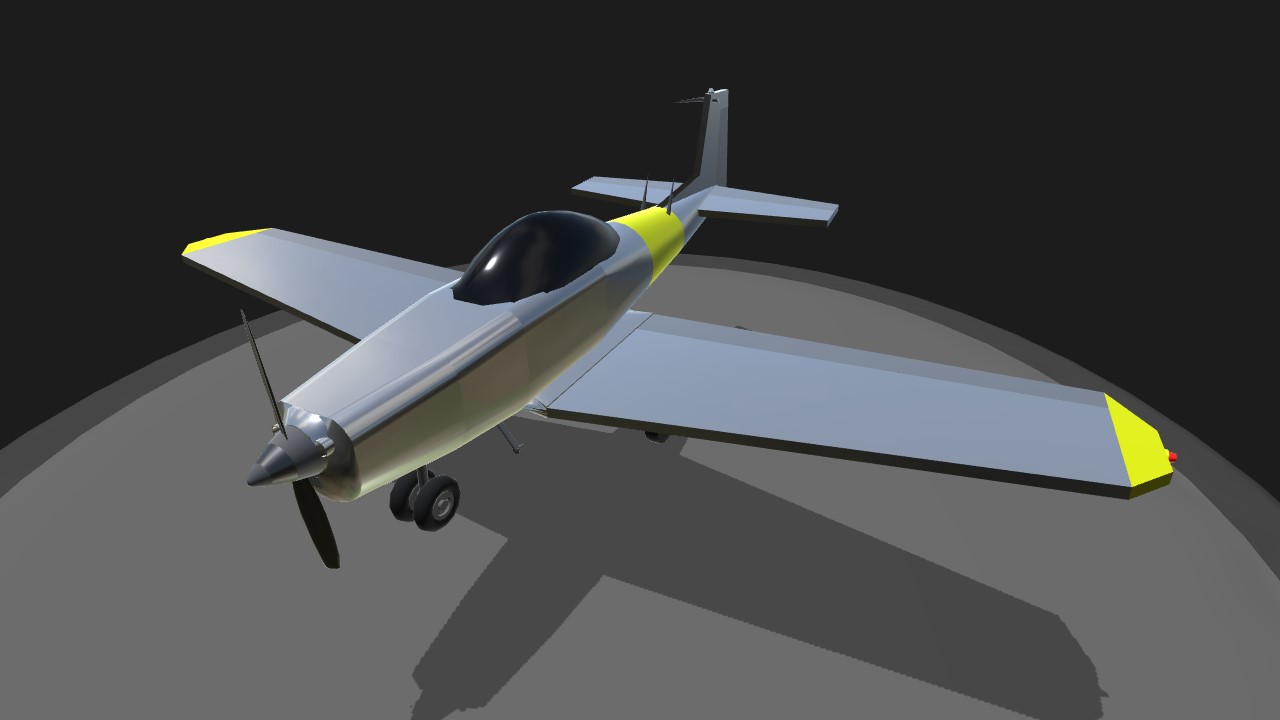
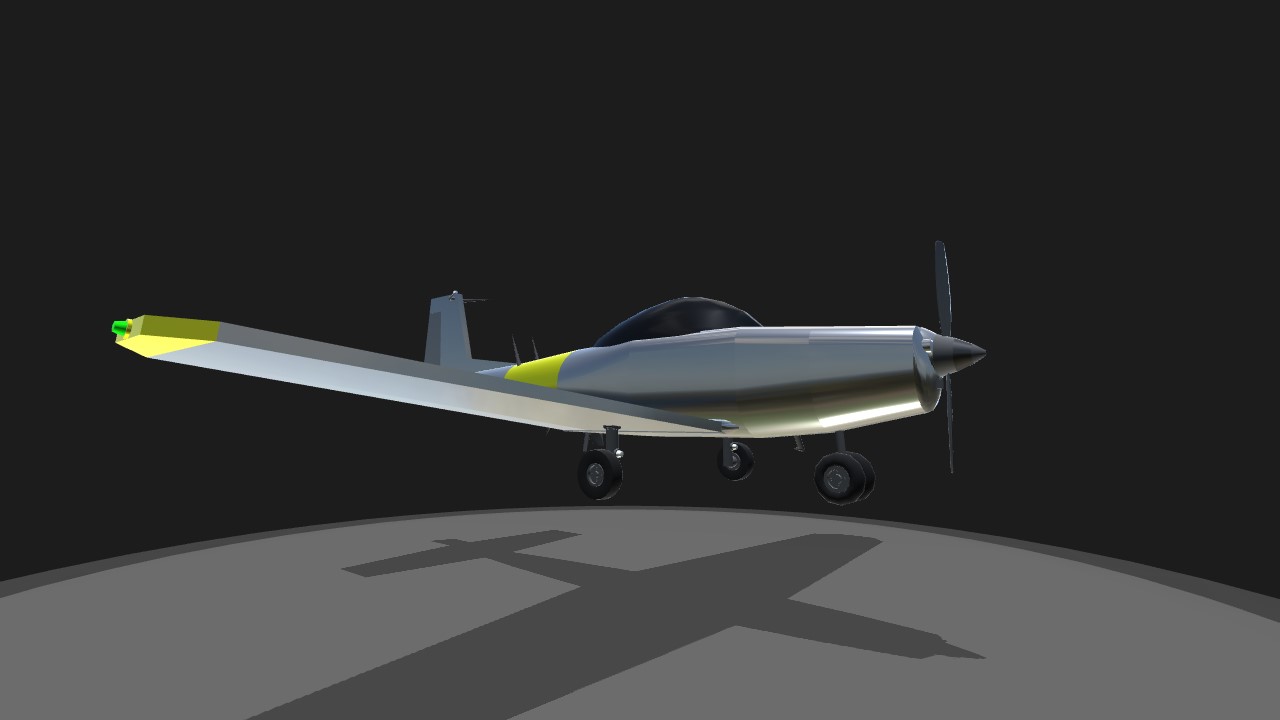
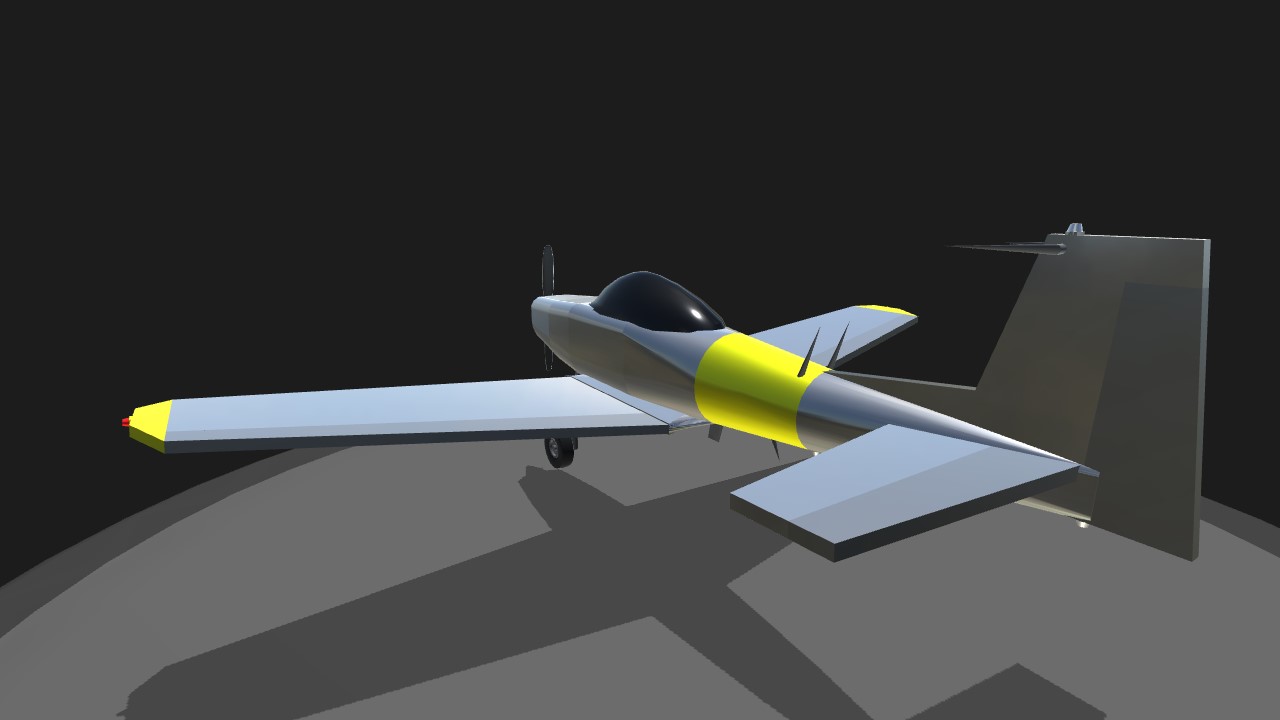
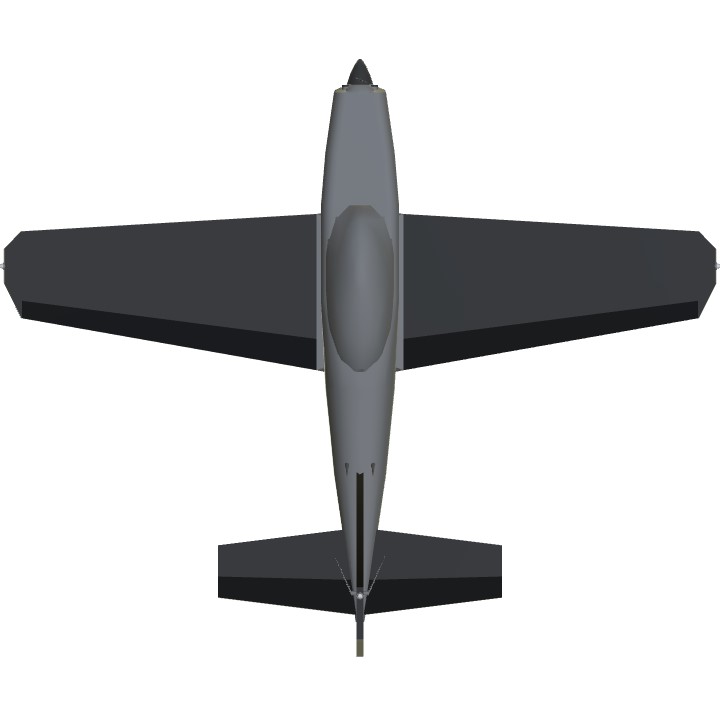
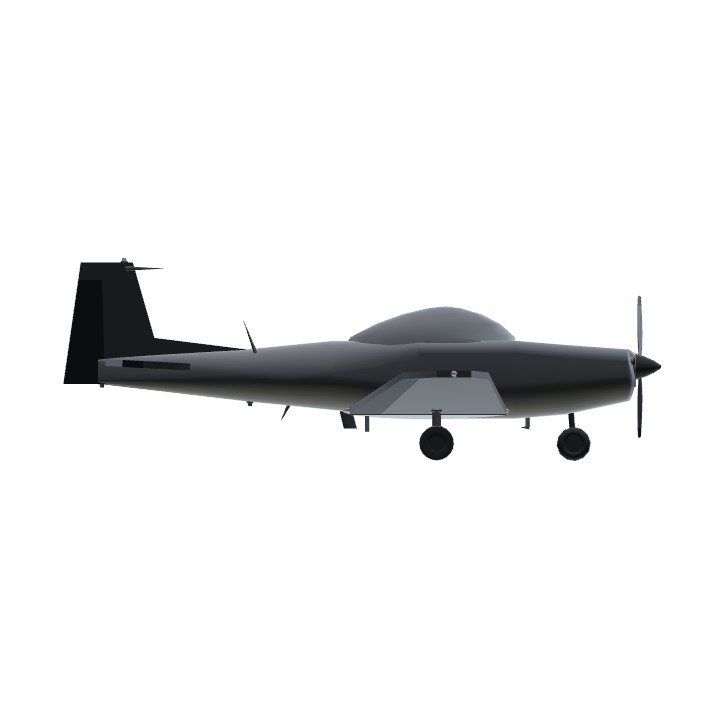
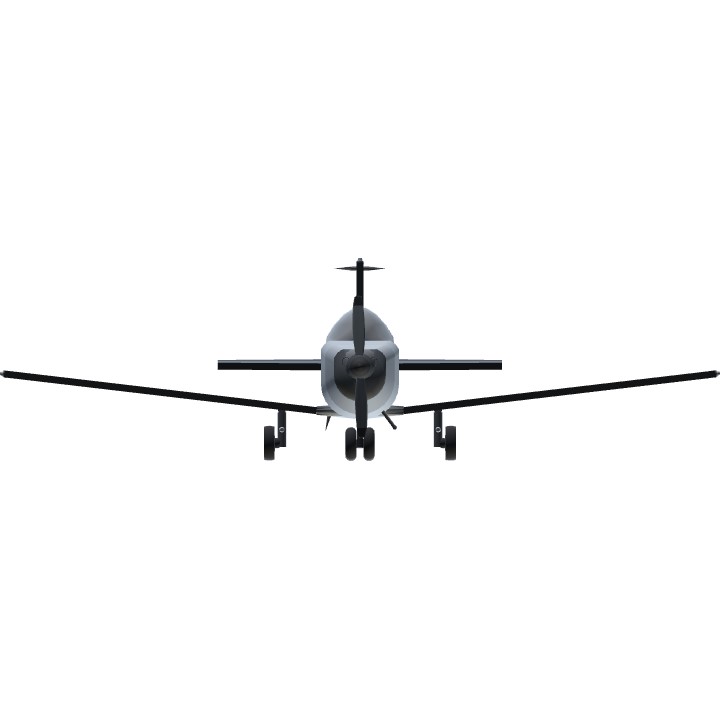
@Sunnyskies
lol
@JohnnyBoythePilot Thanks! And lmao, you're blowing up my notifications now!
I love how simple this Navion is.
@Sunnyskies np
Maybe use this one https://www.simpleplanes.com/a/MdNm64/small-cockpit
Maybe borrow someone else's? Or make a build request. @Sunnyskies
@Unreliablewaffle365 I'm not great at canopies or cockpits. But I could always give it a shot.
Maybe add a detailed cockpit. That would be cool
@ChiChiWerx @MAHADI @Unreliablewaffle365 Thanks!
Very pleasant to fly, nice and relaxed.
simply nice
Beautiful
@BogdanX Thanks. I built this one kind of fast. If I have the time (and motivation), I'll definitely try prettying it up. Finding good reference images is difficult because there are SO many variants of the Navion. Add all the details you see, and you end up with a FrankenNavion. Also, the speed would probably be more realistic if I made the empty weight closer to the realistic value somehow, but I have little experience (and patience) with mass scaling. Do you know how to make negative-mass ballasts?
@Treadmill103 Thanks.